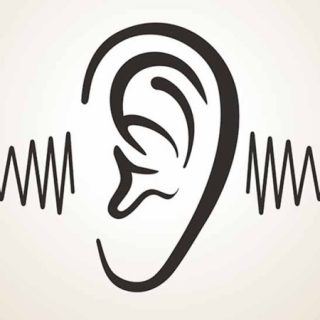Manners are social conduct or rules of conduct as shown in the prevalent customs and they are the first line of defense against unpleasant and illegal behavior. You must know the limits and control yourself, because the collapse of manners leads to anarchy, lawsuits and violence in the real word. Bad and negative behavior results in students being harassed, bullied, suspended, afraid and unable to learn.
Negative behavior costs time and money. If teachers spend 55 percent of their time telling students to stop talking, pay attention and concentrate on a subject, it means that students are getting 55 percent less of an education. That’s half of a day at school wasted and you will have to study more at home, when you could use that time watching TV or playing video games instead. Meanwhile, having good manners and positive behavior helps you to be a better person who is pleasant to be around with. You may have more relaxed manners at home, but when you are outside or you have visitors it is up to you to give a good impression of yourself, your school and your family. It may be fun to have a farting or burping competition with your mates, but pick your time and place so that others are not offended!
Respect others’ time. Don’t be late! It’s better to be in time than to be late. Habitually arriving to class late disrupts lecture or other activities, when all heads turn to watch your entrance. The distraction you make by coming late shows that you do not respect others in class. This kind of behavior annoys teachers as well as students. It’s the same as habitually leaving class early. Even if you leave quietly, you will routinely miss the rest of the class. The lack of clarity will reveal itself in your test results.
You should avoid chatting during class discussion or while fellow students are giving oral reports. Your fellow students appreciate a quiet learning environment and resent students who continually disrupt the decorum.
Do not abruptly interrupt the teacher. Dominating classroom discussion, even to the point of interrupting the teacher with some point you want to make. Don’t talk when the teacher or a classmate is talking and wait for your turn. Sometimes students jump into classroom discussion so enthusiastically that they trample through the teacher’s lecture interjecting comments, many of them less than insightful. Such a behavior upsets not only the teacher, but infuriates the other students as well.
Respect other people. Don’t try to make your classmates look bad in order to show off. There is nothing wrong in responding to what you classmates say, and being critical of their points, but when you do so, you must always be polite. You should show some patience or courtesy to other students when they ask a question or make a statement, even when the subject may be obious to you.
Avoid answering your cellular phone in class. It really exasperates teachers. Remember to turn off your cellular phones before entering class or you may be asked to leave the class. You definitely will not impress anyone, but you may get unfavorably response.
Eating and drinking in class is not tolerated. Teachers may understand that you overslept and did not catch your breakfast, but it does not keep you away from the possibility of spilling, not to mention the disruption it causes. This has led to many educational institutions to post “No Eating” signs in classrooms, libraries and labs.
Angrily confronting the teacher creates an unacceptable environment for all involved. Better spend more time understanding the course syllabus and requirements from the start to cut down on later misunderstanding. Some teachers are lax about attendance, for example, while other teachers have zero tolerance for tardiness even to the point of the classroom door. Some teachers accept late and makeup assignment, while others don’t. If you meet with the teachers as problem arise you will avert the problems.
Avoid physically or verbally abusing anyone. Everybody knows that words can be as harmful as actions. You should think before saying. Be polite, do not spread rumors or use bad language in public – it is offensive to others. Do not make harmful comments or fun about another person’s looks, abilities, background, family, religion, ethnic heritage, or sexual orientation – everyone has feelings, even teachers.
Respect your own and other people property, especially school property. Do not take someone else’s property without permission, returning things that you have borrowed, try to avoid borrowing things all the time and do not forget to share.
Do not pack, zip and close up before class or lecture is completely over. Acting like you do not know what the class is doing and showing that you are bored really annoys teachers.
Sleeping in class cannot be excused even if you had a sleepless night and your school starts very early.
Put rubbish into bins; don’t leave it for someone else to clean up.
While being in classroom you should not forget these things:
- listen to your teacher
- think before you speak
- come to class prepared
- raise your hand to be called on
- compliment each other
- be respectful of other people’s ideas
- address your classmates and teachers with kindness and respect
- remember that teachers have feelings, too
- keep your hands and feet to yourself
- remove your hat in class
- find another way besides anger to express displeasure
- talk directly to the person you have a conflict with, rather than everyone else.
References:
- http://www.pc.vccs.edu/SSS/classroom_eiquette.htm#etiqutte_a_problem
- http://www.cyh.com/HealthTopics/HealthTopicDetailsKids.aspx?p=287&id=2526#4
- http://www.etiquettegrrls.com/pages/feature_college.html
- http://www.suite101.com/article.cfm/college_success/41072/2
- http://ali.apple.com/edres/parents/playgrd/schlanny.shtml
- http://www.marknollschol.org/hs/freshmanSem/schman.htm







You must be logged in to post a comment.